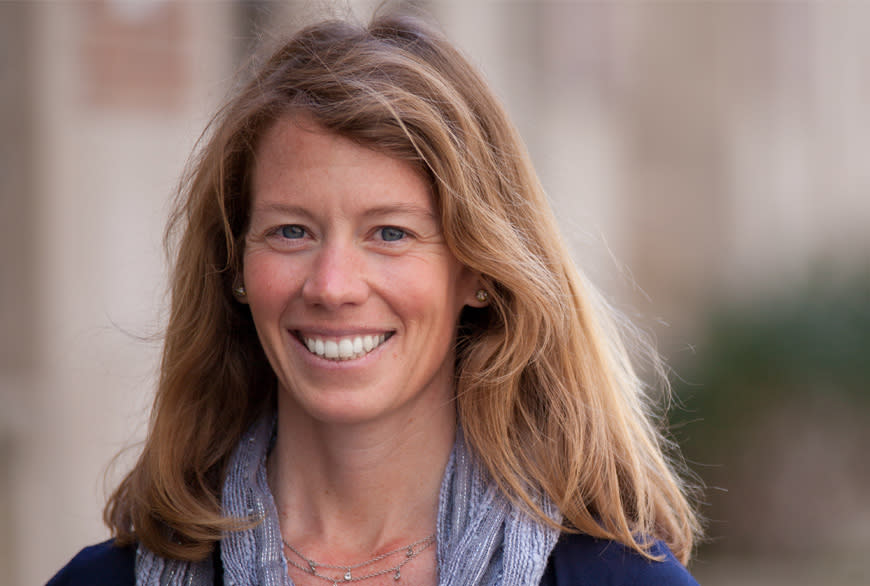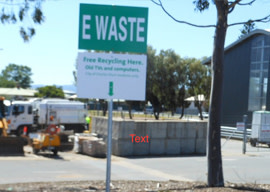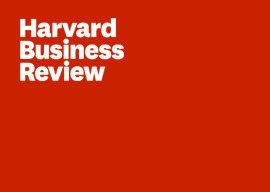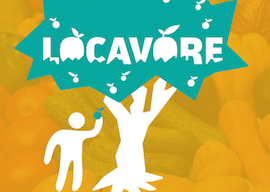
Holly Fowler is a sustainable communities and food systems change consultant and is the co-founder and managing director at Northbound Ventures in Somerville, Massachusetts. Fowler was formerly the senior director of sustainability and corporate social responsibility at Sodexo, one of the world’s largest multinational food service and facilities management corporations, and is currently co-organizer of the Boston Area Sustainability Group whose next event, about GMOs, is on September 6th.
Environmental issues are never isolated problems; they are interwoven into the complexities of everyday experience, including social and political issues. System-level issues such as public transportation and education interact with human-scale challenges, like having enough time and money to buy groceries, to impact consumers’ ability to maintain sustainable, healthy lifestyles.
Untangling such complex problems as access to healthy food requires systems thinking, or consilient thinking, something Fowler knows all about. Speaking about the challenge of creating sustainability she says: “There are a lot of different moving parts that have to happen in concert.” There is an opportunity for corporations and governments to use human-centered design and systems thinking to change how they approach environmental challenges and shift us towards a more sustainable future; and ultimately they have the power and responsibility to do so.
Continuum: What’s your definition of sustainability in the context of food?
Holly Fowler: One of the reasons why, when I started Northbound Ventures, I wanted to make it about sustainable communities and food systems was because my work had showed me that when you think about sustainability, you must think about the built environment, about the design of spaces and communities, about health and all of the factors of accessibility to health, and that includes food. I am a systems thinker, and when I launched the consultancy, I wanted to be part of the solution that wasn’t just food-focused, but tackled broad systemic issues.
Continuum: How do the design of spaces and access affect community sustainability and health?
HF: I think design is a big factor. I’ve been a member of the International Living Future Institute, which administers the Living Building and Living Community Challenges, since 2013. Part of my responsibility at Sodexo was to lead sustainability training for employees and clients across the US and Canada. Rather than just tell people about sustainability in a windowless, soulless conference room, I opted for environments where they could experience sustainability for themselves. The goal was to create in them a desire to have more of what was demonstrated as sustainable in their life, wherever they might be. I had access to thousands of employees, and the opportunity to put them in spaces that were really thoughtfully curated, in terms of design, programming, food sourcing, and resource use. Taking them to places where they could see, touch, feel, and hear sustainability in action—leading spaces like Evergreen Brickworks in Toronto, the Trinity River Audubon Center in Dallas, and the Bullitt Center in Seattle, the first certified Living Building in the world.
A building is not a stand-alone structure. The building interacts with its environment, and any time you put a building some place, you challenge people to walk into, through, or around it, so you basically put it in the path. There is currently a tension though between human-centered community design philosophy and the reality of how urban centers function, not the least of which involves how food is transported. All of this is to say that we mustn’t think about a building, a garden, or a farm, or any kind of urban agriculture or growing space, all by itself—we have to think about how people access it, how people are invited in. When I lead people through strategic planning processes, I try to ensure that all the influencing pieces and concurrences are considered. Why? Many times people look to move the needle on something, but they’re not necessarily looking at the best ways of moving the needle. Sometimes people are just looking at progress indicators, rather than impact outcomes. Both are important, but progress is growing food and the impact is a healthier population.
Continuum: You’ve said that to improve the viability of our natural resources and to end our fight with hunger, we need to continue to impact business, governments, and consumers as they reduce waste, reconnect people with food, and simplify food while improving efficiencies. I’m curious if you still totally agree with these initiatives, or if not, how they have evolved or changed?
HF: When I think about whose responsibility is it to improve the food system… I think government and large corporations have the most power, and increasingly the top-tier of the income bracket who can exert undue influence on both. As a result, I would say that campaign finance reform is probably the most fundamental change needed to shift us towards a more sustainable food system. Having worked in this space for a long time, I’ve learned that part of the hedge against making broader change is the expectation that consumers have to demand it. This creates this unrealistic situation in which you don’t provide change until people demand it—but we know much of consumerism is based on providing things to people that they didn’t know they already wanted or needed. You’re from Continuum, so you understand how that works with products and services. Saying that we’re not going to go more organic until people demand more organic food isn’t going to move things forward.
I also think there are large expectations on consumers that are unrealistic. I’ll give you an example: the BASG event in September focuses on genetically engineered foods. I have not been in the camp of saying categorically “GMOs are awful and we should label everything.” I respect the complexity of this debate and reserve broad sweeping judgment. I think that not all GMOs are created equal and that some may be necessary. I wonder if labeling is the most efficient use of resources or merely shifting the burden to the consumer. Should it be a requirement of those still producing GM food products to subsidize GMO-free labeling for others? The cost to label everything that has a genetically engineered ingredient in it is going to be exponentially more than differentiating the small percentage of products that are GMO-free. I look forward to continued learning and assessment of the strategies most beneficial to consumers, communities, and food companies, including growers.
Continuum: What is the consumer’s role and responsibility in creating impact in some of these sustainability challenges?
HF: I think every citizen always has the responsibility to be as informed as he or she can be, but the issue is that today there is so much disparity in people’s access to education. There are myriad issues of varying complexity surrounding food, and it is unrealistic to expect the average consumer to have a comprehensive grasp of them all. The average consumer really just needs to know, “Do I know what this food is? Is it healthy for me, my family, and the planet? Do I have the resources to buy this food? To prepare this food?” I will never sway from the fact that it’s our responsibility to be informed about food, and everything else in our lives—about politics, about everything—but we have to be realistic about how much of our population currently has access to information and education about their food.
Continuum: What are corporations’ responsibilities in the education of people, of consumers?
HF: I think the real responsibility is to make it easy for consumers to make good choices. There is greater equity in a food system where sufficiently diverse options are high quality, sustainable, and accessible to all. The average consumer is not a food systems expert or food scientist, so any product label or ingredient list needs to be simple and clear. We need to redefine food safety, which today focuses on acute, not chronic illness. Truly safe food should be expected to support lifelong health.
Continuum: It sounds like we have to address pressing social issues before we can make big change to environmental issues. Would you agree with that?
HF: I think that has to happen and there are other things that can be happening simultaneously. Just because we have to address broad social issues doesn’t mean that those with the power to make change at scale in different areas shouldn’t already be doing so.
Very large companies can change employee working conditions now, change employee wages now—all of these things that are part of a cycle. You have to start with creating good work environments, providing fair wages, treating finite resources with respect to support the social improvement. That in part is what allows people to have greater access to education, to information, to transportation, to all of the services that improve equitable food access. It’s a system, and there are a lot of different moving parts that have to happen in concert.




